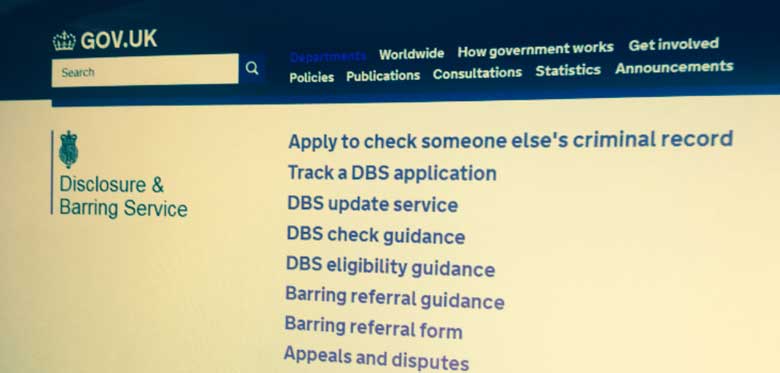Beginning in 2018, the DBS will offer a service for a basic DBS check. This is in addition to the standard and enhanced level checks already provided as well as the information relating to the protection of vulnerable groups (barring register). The basic check is currently only available through Disclosure Scotland.
The basic disclosure certificate will show any ‘unspent’ convictions that an individual may have in the UK. This check will be able to be carried out by individuals or organisations who will then be able to show this certificate to any prospective employers or other organisations that need the information. The information will be obtained through the PNC (Police National Computer).
The introduction of basic check availability was originally due to come in July 2017; however, the Disclosure and Barring Service are now working towards January 2018 for the full introduction of both individual and organisational requests. A transitional period commences in the next couple of months where organisations will be able to request basic level checks.
Under Disclosure Scotland this is the most common and lowest level of disclosure available.
Consolidating all of the checks into one service provided by the DBS will hopefully reduce confusion for employers regarding whether or not they need a standard or enhanced check for their employees. The majority of the time, this is not the case.
Further to the basic check, the DBS is also introducing an online service. From September, employers and organisations will be able to submit barring referrals online, as well as create an account in order to be able to manage their referrals.
What's the difference between types of certificate?
As set out above, a basic check will set out any unspent convictions, but will not include convictions or cautions that are spent under the Rehabilitation of Offenders Act 1974 as amended.
Standard and enhanced certificates are only available for use by regulated bodies or employers in a relevant field, such as those providing care for vulnerable groups including children. Access to the information is restricted because it includes spent convictions and in the case of enhanced certificates may also contain non conviction information.
The information included on a standard certificate can be requested for those undertaking duties or positions, or applying for licences included in the Rehabilitation of Offenders Act 1974 (Exceptions) Order 1975. This includes court officers, employment within a prison, and Security Industry Authority (SIA) licences. This will contain details of all ‘spent’ and ‘unspent’ convictions, cautions, reprimands, and final warnings, which have not been filtered in line with legislation.
Enhanced certificates can only be required in specific circumstances, for example: those regularly caring for, training, supervising or being solely in charge of children, specified activities with adults in receipt of health care or social care services and applicants for gaming and lottery licences. This certificate contains the same information as the standard certificate, but also includes any discretionary information provided by the police.
Enhanced certificates with a barred list check is available for those carrying out regulated activity and a small number of positions listed in the Police Act 1997 regulations, for example, prospective adoptive parents and taxi and private hire vehicle licences. This contains the same information as the above, as well as information regarding whether the individual is included on either of the adult or child barring lists.
Again, enhanced certificates are subject to the filtering provisions so that minor offences and cautions will be filtered from appearing. Recent challenges to the filtering regime and what is not filtered are ongoing and due to be heard in the Supreme Court sometime in 2018.
The basic check is important in order to ensure that unnecessary information is not disclosed to prospective employers, which may be the case if a standard or enhanced check is used where it is not warranted. A person who has committed an offence which is spent and not relevant to the work they wish to do is still entitled to pursue employment. Where public protection is not an issue, DBS checks should not prevent safe employment.
At Stephensons, the criminal record and disclosure team provides a range of services regarding disclosure and barring issues and disputes. We regularly advise individuals on challenging inappropriate contents in the discretionary information section and have pursued cases to the Supreme Court leading to changes in the law relating to disclosure.
We also regularly advise on Minded to Bar notifications and advise on appeals against the same. Please contact us on 01616 966 229.
By Collette Snape, casework support intern and Mike Pemberton, partner, in the civil liberties team.




Comments